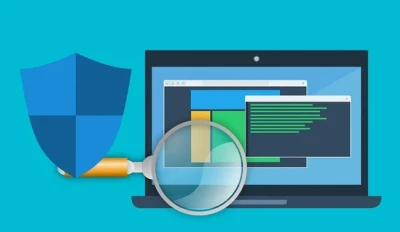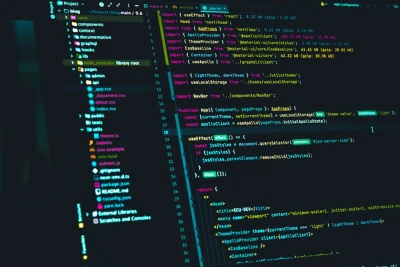
Attention Linux administrators and Python developers! A crucial security alert regarding a high-severity vulnerability, CVE-2024-12254, has just been issued, affecting systems running Python versions 3.12.0 or later. This issue could potentially lead to memory exhaustion that could cripple applications or cause system crashes if left unaddressed.
Distros are still pushing out fixes for this flaw, and admins should vigilantly monitor the latest security advisories issued by their distro(s) and apply patches as soon as they are released. At the moment, Fedora and Rocky Linux have released important updates addressing this issue. LinuxSecurity has also put together a guide on how to update and upgrade your Linux distro to protect against vulnerabilities like CVE-2024-12254.
In this article, we're taking an in-depth look at the CVE-2024-12254 vulnerability. You'll learn what it is and its impact on Python applications running the asyncio module. We will also equip you with the knowledge required to safeguard your systems and guidance on implementing necessary updates and patches, as well as best practices for safeguarding your applications. Let's begin by examining this vulnerability and how it could be exploited for malicious purposes.
Understanding CVE-2024-12254
 CVE-2024-12254 is an overlooked flaw within the implementation of asyncio in Python 3.12.0, related explicitly to zero-copy-on-write behavior that was meant to increase performance but instead resulted in unintended flaws within asyncio's _SelectorSocketTransport's writelines() method, responsible for writing data onto sockets. This flaw involves its failure to properly manage its internal buffer, leading to excessive memory usage and performance degradation or system crashes.
CVE-2024-12254 is an overlooked flaw within the implementation of asyncio in Python 3.12.0, related explicitly to zero-copy-on-write behavior that was meant to increase performance but instead resulted in unintended flaws within asyncio's _SelectorSocketTransport's writelines() method, responsible for writing data onto sockets. This flaw involves its failure to properly manage its internal buffer, leading to excessive memory usage and performance degradation or system crashes.
Impact Scope and Affected Versions
This vulnerability affects Python version 3.12.0, which runs on macOS and Linux platforms. It is especially concerning in instances of high-volume asynchronous data writes. With Python applications increasingly relying on such I/O operations for efficiency and performance reasons, the potential repercussions of this vulnerability are extensive, particularly for those using asyncio as part of network servers, web applications, or data-driven services.
Technical Deep Dive
To help you fully grasp the implications of CVE-2024-12254, I'll provide you with an overview of its technical details. The asyncio._SelectorSocketTransport.writelines() method handles data writing directly onto sockets. Python 3.12.0 introduced zero-copy-on-write optimization, significantly increasing performance by eliminating unnecessary copying operations.
This issue arose due to inadequate buffer management. When faced with high-volume asynchronous data writes, a buffer overflow may occur since no proper measures exist to pause and drain data. Without control, this accumulation of information can exist unchecked in memory space, leading to memory exhaustion and degradation of performance, unresponsive behaviors, or complete crashes, depending on the system resources available and the workload of the affected application.
Real-World Implications
 CVE-2024-12254 has potentially grave repercussions in real life. Applications that heavily rely on asynchronous I/O operations - like network servers that manage numerous client connections or web applications with high client requests - could become resource-hungry quickly when exposed to this vulnerability. They will quickly use up vast amounts of memory resources and ultimately shut down.
CVE-2024-12254 has potentially grave repercussions in real life. Applications that heavily rely on asynchronous I/O operations - like network servers that manage numerous client connections or web applications with high client requests - could become resource-hungry quickly when exposed to this vulnerability. They will quickly use up vast amounts of memory resources and ultimately shut down.
The impact of this bug extends beyond individual applications to infrastructure as a whole. When critical components such as web servers or backend services become compromised, their failure can have serious repercussions across an entire system, disrupting services dependent on them and impacting user experience, data integrity, and overall system reliability. So, swift action must be taken against this vulnerability to maintain stability and security for Linux systems running Python.
Practical Mitigation Strategies for Developers & Admins
To defend impacted systems and applications against CVE-2024-12254, Linux administrators and Python developers should implement a strategy that includes immediate and long-term mitigation measures.
First and foremost, users must remain up-to-date with any developments from the Python development team. Regularly monitoring security advisories for Python installations and applying updates as soon as they become available is paramount in closing security gaps and protecting privacy.
Additionally, a comprehensive code review must be conducted for version control to detect instances where the.writelines() method is being utilized within an asyncio context. Auditing your codebase helps identify potential weak spots. Where feasible, refactoring code with alternative methods that do not exhibit these vulnerabilities can significantly decrease memory exhaustion risk.
Implementing resource monitoring solutions is another useful strategy against potential disasters. By monitoring memory usage in applications with asynchronous I/O operations, administrators can detect abnormal patterns indicative of memory leakage or excessive consumption. By setting alerting mechanisms for unexpected increases in memory usage, admins can quickly respond to and mitigate the effects of an exploit before further disruption occurs.
Looking Ahead: The Road to Robust Security
 As Python continues to adapt and incorporate new features that improve its performance, maintaining robust security practices must remain at the forefront. Developers must balance efficiency with exhaustive testing and validation procedures that identify vulnerabilities early in development lifecycle processes.
As Python continues to adapt and incorporate new features that improve its performance, maintaining robust security practices must remain at the forefront. Developers must balance efficiency with exhaustive testing and validation procedures that identify vulnerabilities early in development lifecycle processes.
Nurturing a security-minded culture within development and administrative teams is also paramount. Promoting continuous learning and staying abreast of current security trends and vulnerabilities helps foster an atmosphere in which security is a shared responsibility. Regularly participating in security training courses, conferences, forums, and discussions helps increase security awareness and raise levels of alertness within an organization.
Our Final Thoughts on Mitigating This Python Flaw
CVE-2024-12254 represents a severe vulnerability that requires immediate attention from Linux administrators and Python developers. Gaining an in-depth knowledge of this vulnerability's technical intricacies, impact scope, and mitigation strategies is paramount in protecting systems and applications against harm. By employing immediate steps such as monitoring patches, rolling back versions, and long-term resilience practices within our communities, we can successfully reduce any associated risks from the CVE-2024-12254 vulnerability.
Maintaining a balance between performance and security will become more critical as the Python ecosystem expands and adapts. Through continuous vigilance, proactive mitigation, and sound infrastructure practices, we can defend against emerging threats while protecting our essential systems' integrity and availability.



















